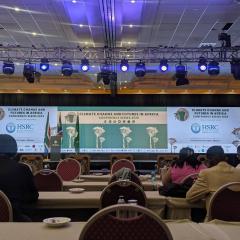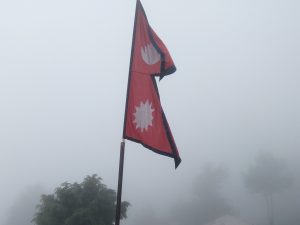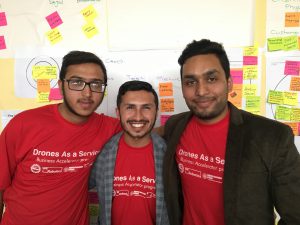
How we Benefited from the Business Incubation
July 6th, 2017
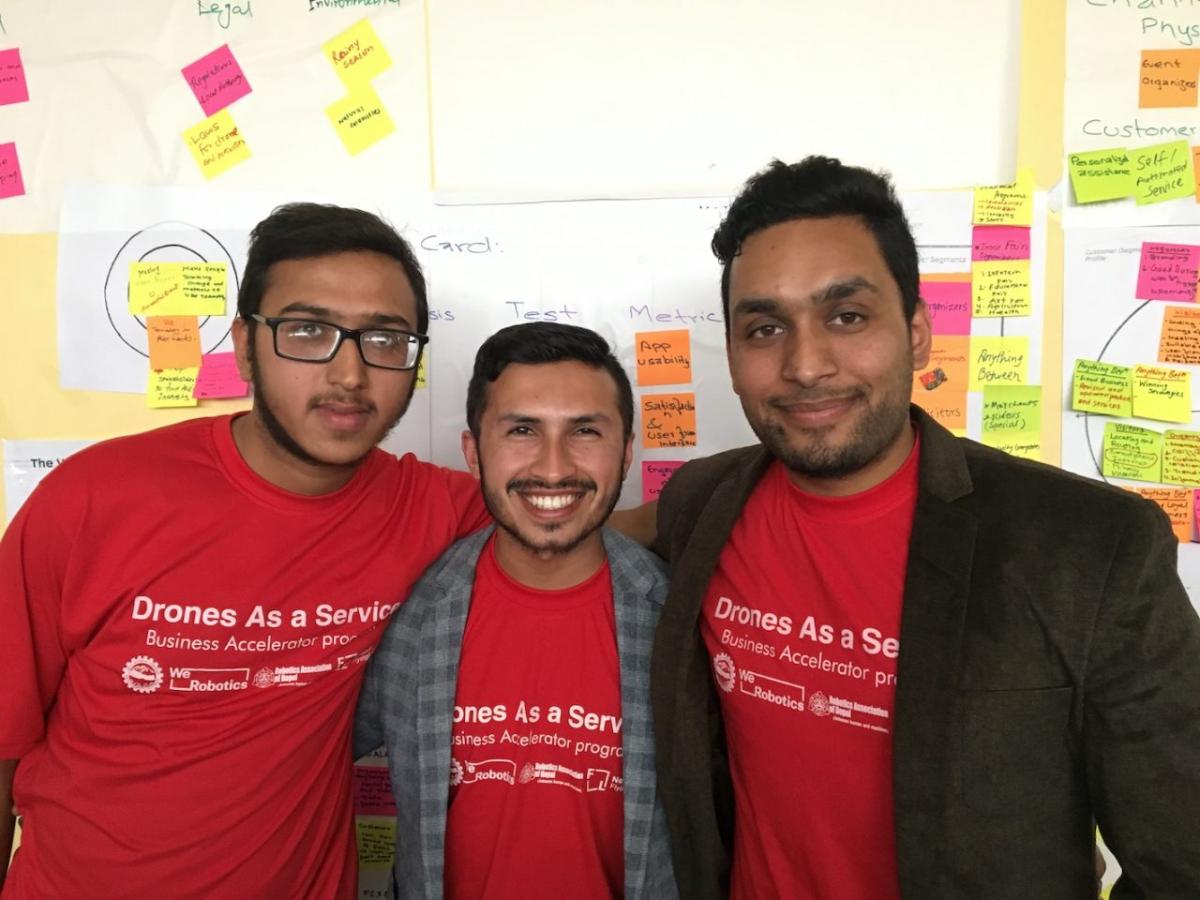
Cross-post from Nepal Flying Labs. Written by Darpan Pudasaini, cofounder of DroNepal
As they say, every problem presents unique opportunities, and being a developing country constantly tested by nature, politics and what not, Nepal presents infinite opportunities for any innovator. While many tend to get pushed away towards better lands by scarcity, poor lifestyle, an incapable government, and every other problem existing in Nepal, the remaining few see the opportunities and more importantly their responsibility in solving the problems. Still, many of the people that stay are not able to create solid impact even despite giving their best effort, and it's all due to the lack of practical real world knowledge in doing business, managing people, and scaling their innovations.
We were a few engineers from different backgrounds, working towards our own visions, who decided to team up and form an expert group of drone operators. Our goal was to provide drone based services in Nepal: a developing nation with more than 70% of its landform topographically challenged, where infrastructure developments are not sustainable, and where development goals and planning are not based on accurate and qualitative data. We decided to form a drone based business under the name “DroNepal” (Drone + Nepal).
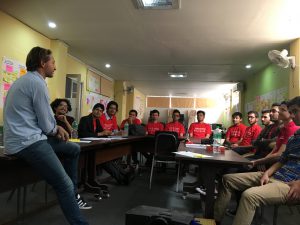 Then it turned out that the international organization WeRobotics, who’s working on creating social good using robotics, happened to have planned a business incubation program in Nepal. This was in coordination with its local office, Nepal Flying Labs, along with the Robotics Association of Nepal and the Nepal Engineers Association. There couldn’t have been a better opportunity for DroNepal to get business expertise and the needed tools to ensure that our business gets jump started in the right direction.
Then it turned out that the international organization WeRobotics, who’s working on creating social good using robotics, happened to have planned a business incubation program in Nepal. This was in coordination with its local office, Nepal Flying Labs, along with the Robotics Association of Nepal and the Nepal Engineers Association. There couldn’t have been a better opportunity for DroNepal to get business expertise and the needed tools to ensure that our business gets jump started in the right direction.
Among 23 teams, DroNepal got selected as one of the four finalists in the business incubation program that was to take place from February to June, 2017. Being an all-engineer team, DroNepal was already a technically sound with all the required expertise to carry out the planned services. The main challenge was in coming up with a proper business plan, and a strategy to obtain optimum results with efficient utilization of resources. Hence we were lucky to have been selected to move on to the week-long business incubation seminar, where people from across the globe with years of expertise in business strategy were providing mentorship. This period of training with Sonja Betschart and Laurent Kohler, the two business gurus who ran the seminar, tested us, guided us, and gave us invaluable amounts of knowledge and tools for business planning, proved to be on the level of a business school education, all the while having fun along the way.
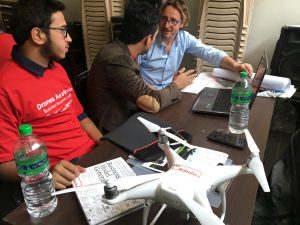 The mentoring sessions were tailored to our specific needs and skills, which helped us learn how to quickly develop our business plan. Even more importantly, we learned how to look at things from an entrepreneurial point of view, a life changing lesson for us. With all the knowledge we gained, tools we used, and sleepless work nights we had, we managed to win the final competition and were awarded a total of 8,000 USD in grants. These funds are very important to starting a business, and we decided to take them in the form of hardware components and equipment that we need to carry out our projects. The remaining three teams that competed in the finals : Kalpabrikshya (Drone based Mapping and Tracking services for events), Airlift (Drone based delivery of medical supplies and goods) and Maphub (Drone based surveying), were all deserving with their business ideas. Their plans covered different markets, but all had the same ultimate vision as us, to use drones to aid in development. We would love to find possible ways of collaboration with them to create a larger social impact in Nepal.
The mentoring sessions were tailored to our specific needs and skills, which helped us learn how to quickly develop our business plan. Even more importantly, we learned how to look at things from an entrepreneurial point of view, a life changing lesson for us. With all the knowledge we gained, tools we used, and sleepless work nights we had, we managed to win the final competition and were awarded a total of 8,000 USD in grants. These funds are very important to starting a business, and we decided to take them in the form of hardware components and equipment that we need to carry out our projects. The remaining three teams that competed in the finals : Kalpabrikshya (Drone based Mapping and Tracking services for events), Airlift (Drone based delivery of medical supplies and goods) and Maphub (Drone based surveying), were all deserving with their business ideas. Their plans covered different markets, but all had the same ultimate vision as us, to use drones to aid in development. We would love to find possible ways of collaboration with them to create a larger social impact in Nepal.
The role of WeRobotics wasn’t just to provide us the necessary knowledge, tools and a grant funds, but also to provide us their continued support with actual projects even after the competition - and this is what differentiates them from majority of other incubation programs that we have seen. We already have done two projects in partnership with them, which in turn has opened even more doors for us to explore and create impact in the market here. Our first project together was surveying of Liping Khola Hydropower, and the second was a community mapping of the Shermathang village.
Data processing and analysis is still undergoing for these two projects. As that is completed, we will publish the results in blogs posts to the website, along with more detailed write-ups of the specific missions.
Recent Articles

